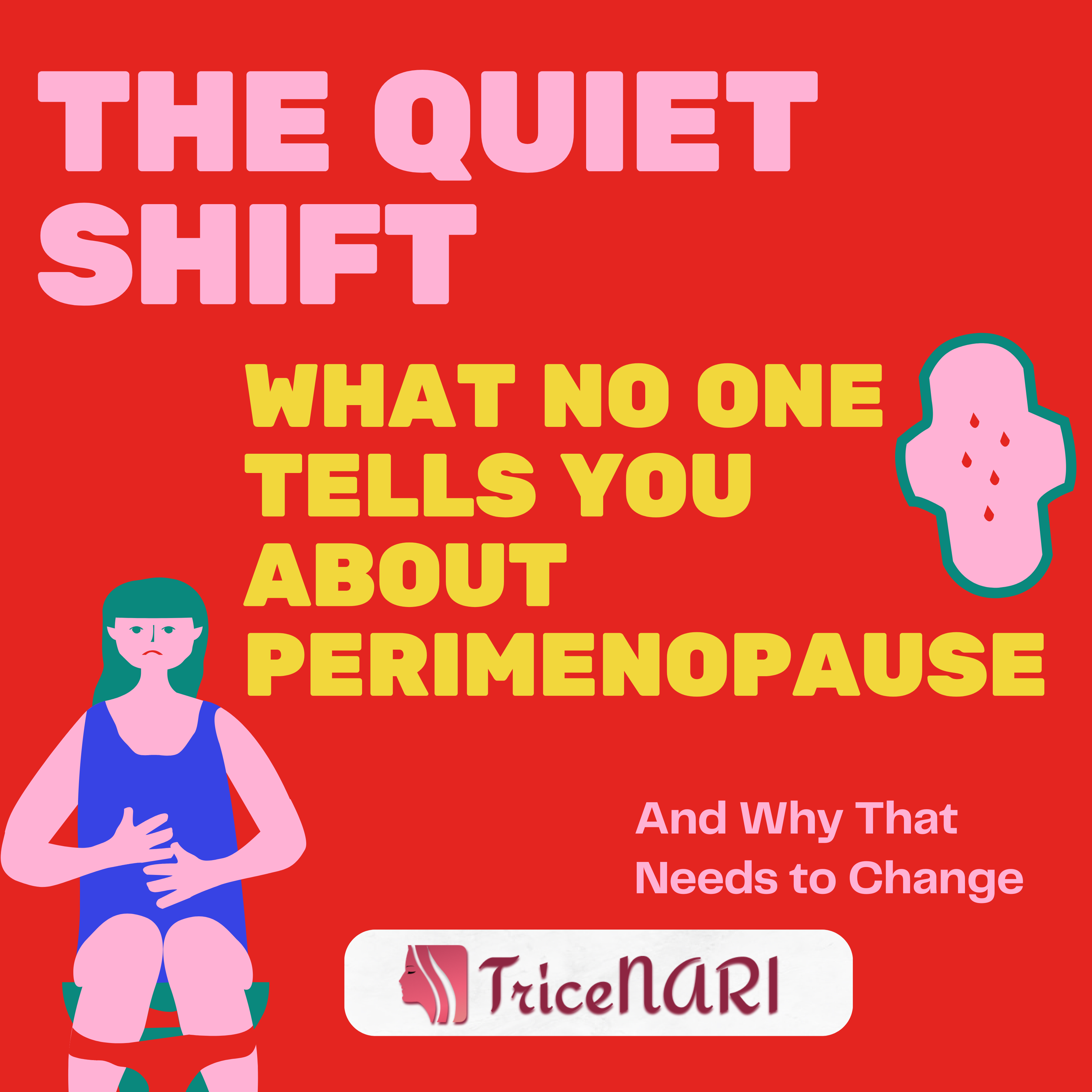The Quiet Shift: What No One Tells You About Perimenopause (And Why That Needs to Change)
There’s a peculiar silence around perimenopause in India. Women whisper about the changes, if at all. Doctors often brush it off as “just hormonal,” and society has yet to acknowledge it as a significant life phase. But for many women in their mid-30s to late 40s, perimenopause isn’t just about irregular periods - it’s a full-body experience that quietly alters sleep, skin, moods, metabolism, and self-image.
You might suddenly be waking up at 3 a.m. every night. Or find that your energy dips for no reason by afternoon. Or that you’re more anxious, less patient, and a little confused about why your once-predictable body feels...off. The problem isn’t that it’s happening. The problem is no one prepared you.
Perimenopause doesn’t announce itself with drama - it creeps in quietly. And most Indian women are never taught to recognize its signs. It’s time we changed that...!
Unlike pregnancy or motherhood, perimenopause doesn’t get books, support circles, or Bollywood scripts. But it should. Because this is a transition that demands attention, adaptation, and a radical kind of self-care that Indian women are never taught to prioritize.
This is not a medical article - it’s a nudge to start listening to yourself. Maybe you’ve been putting off getting those blood tests, or brushing away mood swings as stress. Maybe your jeans don’t fit, and you’re blaming your diet. Maybe you’re snapping at your partner and silently wondering, “Is something wrong with me?”
No, nothing’s wrong. But something is shifting. And the earlier you acknowledge that shift, the more power you’ll have in navigating it. It starts with learning the signs: irregular periods, sleep disturbances, brain fog, changes in libido, unexplained weight gain, night sweats, and even heightened anxiety. It continues with informed conversations - with doctors, girlfriends, or even your journal.

Perimenopause is not a medical emergency. But it is a wake-up call. To start listening inward. To rework how you eat, move, sleep, and care for your mind. It’s also a call to unlearn the silence handed down by generations. Let’s start saying the word out loud. Let’s normalize it, understand it, and help each other through it - not just when the hot flashes begin, but long before that.





